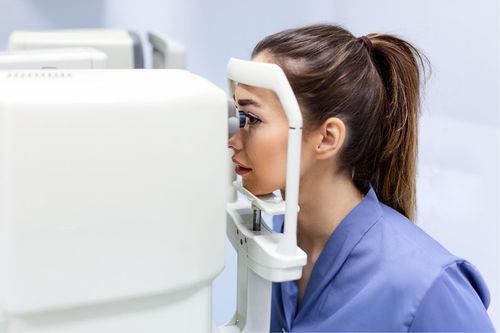AI-based eye scanners can predict strokes and heart diseases
Researchers in London develop QUARTZ to use retinal scanners to examine cardiovascular health.
October 28, 2022

Researchers in London develop QUARTZ to use retinal scanners to examine cardiovascular health.
Scientists have developed an AI retinal scanner that can predict whether a patient might have a heart attack, heart disease or stroke.
Behind the eyeball are thin tissue layers filled with blood vessels. The network and the width of the vessels are sensitive to blood pressure, which indicates cardiovascular health. Studies have shown that eye scans can measure a person’s gender, age, smoking habits or if they’re diabetic.
Researchers at the University of London claim to have conducted the largest AI retinal study, looking at scans of over 70,0000 White people from two biomedical databanks—U.K. Biobank and European Prospective Investigation into Cancer.
The team used the datasets to train an AI platform using a supervised learning technique called QUARTZ (Quantitative Analysis of Retinal vessels Topology and siZe). The algorithms utilized patient medical histories and eye images to classify common visual characteristics in retinal scans to find a pattern that could forecast heart attacks, myocardial infarction, heart diseases or strokes. The system learned to predict the chances of a person dying from heart disease over the next five years.
To validate QUARTZ, the academics compared their results against the Framingham Risk Score (FRS), an algorithm used to analyze the risk of someone developing heart disease over the next ten years. QUARTZ’s results were as accurate or better than FRS.
"AI-enabled vasculometry risk prediction is fully automated, low cost, non-invasive and has the potential for reaching a higher proportion of the population in the community because of 'high street' availability and because blood sampling or sphygmomanometry are not needed," the researchers wrote in their paper. The results were published in the British Journal of Ophthalmology.
In the future, the authors said they wanted AI retinal scans to be used to check a person’s cardiovascular health without the need for blood tests or blood pressure checks.
One obstacle is regulatory and technical challenges. Ophthalmologists would need to learn how to interpret retinal scans for cardiovascular health. Furthermore, a randomized clinical trial would be needed to validate the results to show that an AI-based system is a better predictor than current screening tests, Ify Mordi, a clinical senior lecturer at the University of Dundee told The Register.
You May Also Like
.jpg?width=700&auto=webp&quality=80&disable=upscale)
.jpg?width=700&auto=webp&quality=80&disable=upscale)
.jpg?width=700&auto=webp&quality=80&disable=upscale)
.jpg?width=300&auto=webp&quality=80&disable=upscale)
.jpg?width=300&auto=webp&quality=80&disable=upscale)
.jpg?width=300&auto=webp&quality=80&disable=upscale)
.jpg?width=300&auto=webp&quality=80&disable=upscale)
.jpg?width=300&auto=webp&quality=80&disable=upscale)